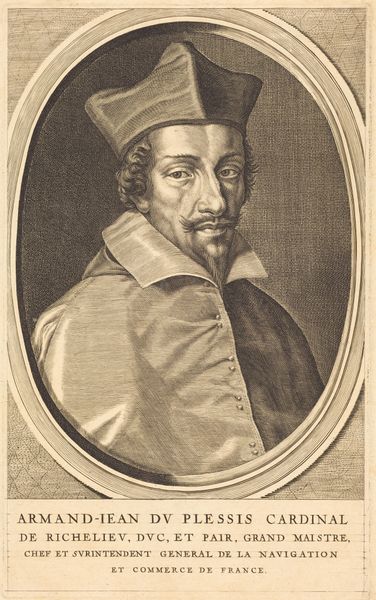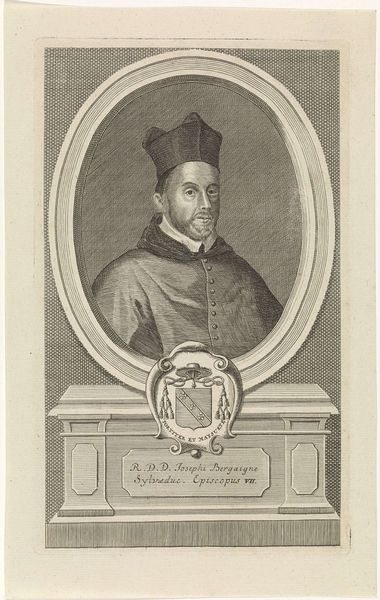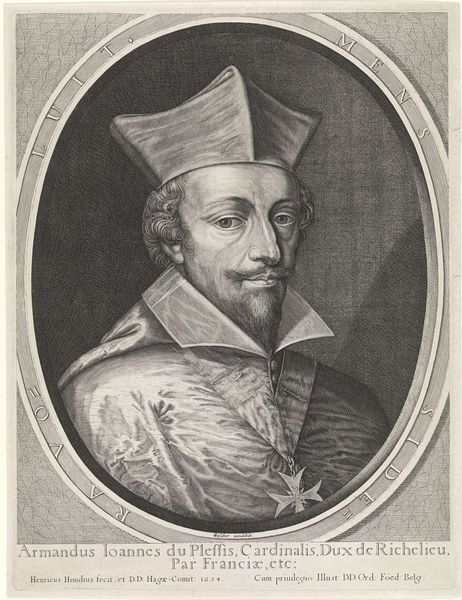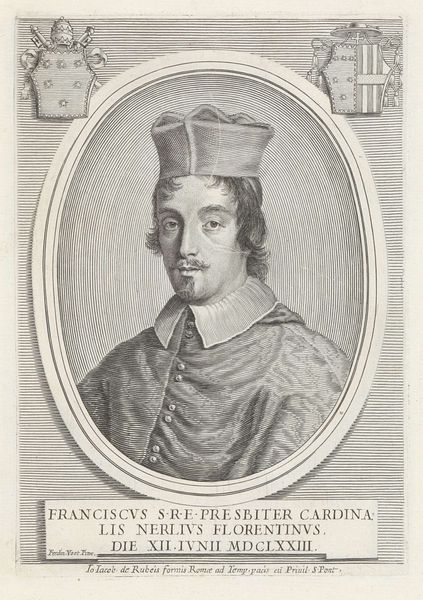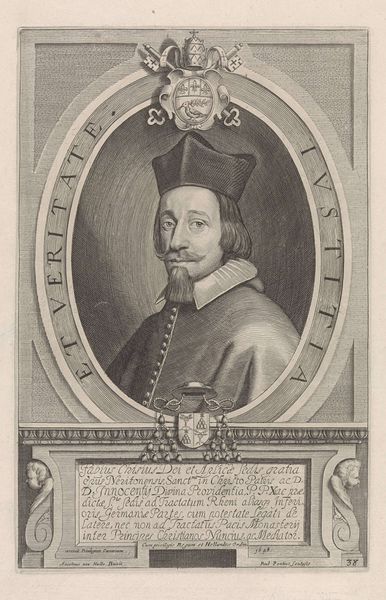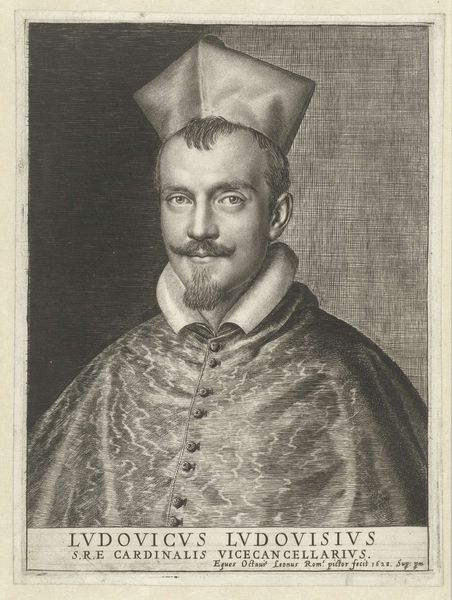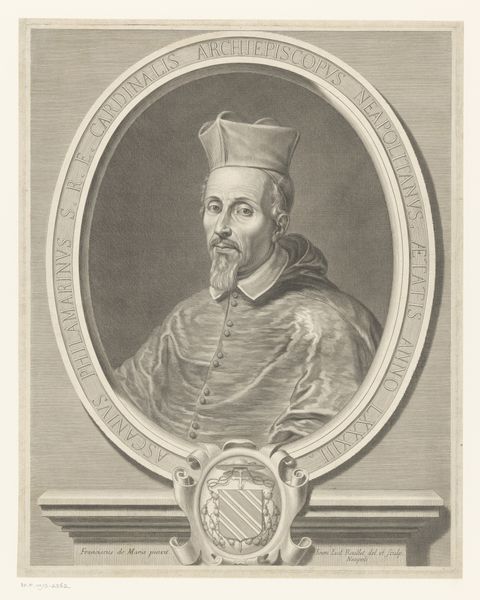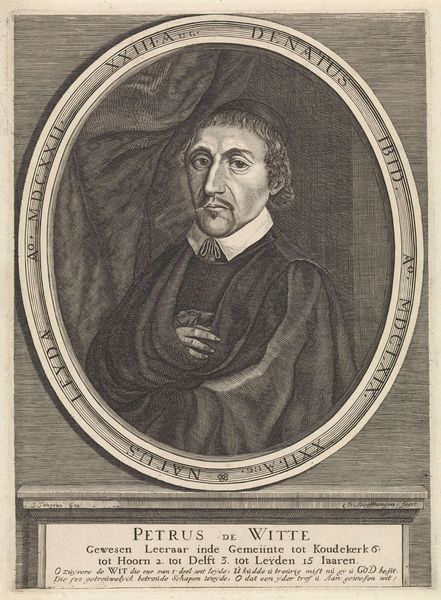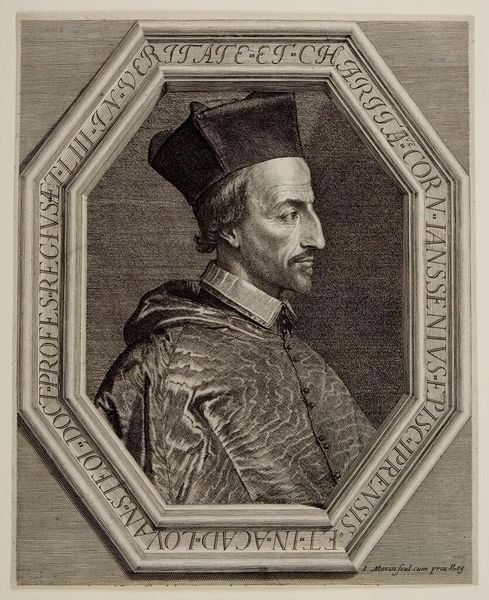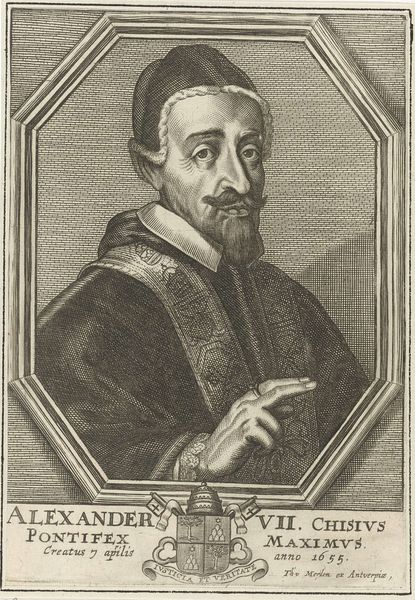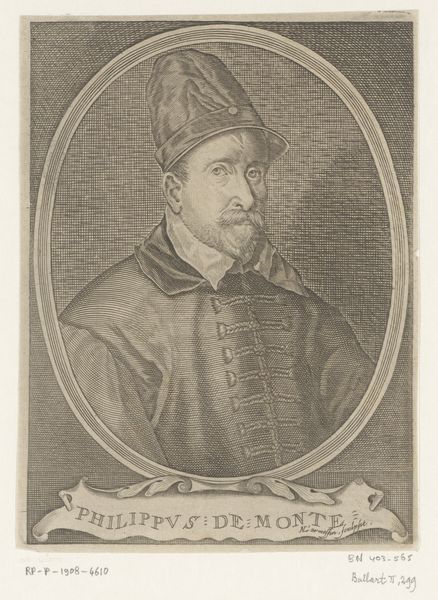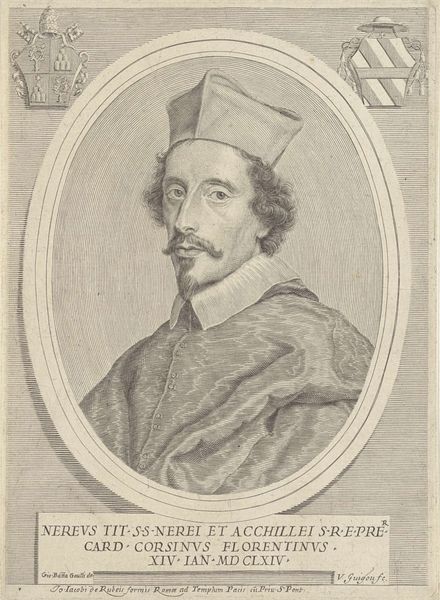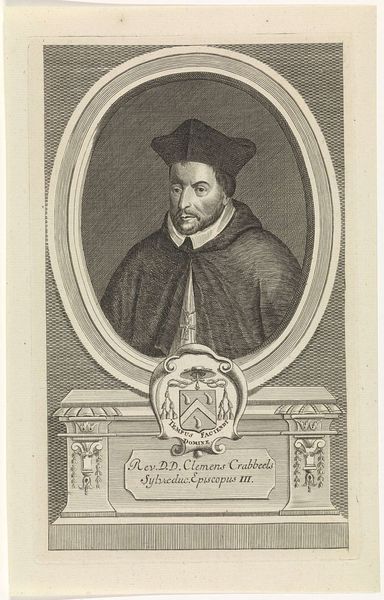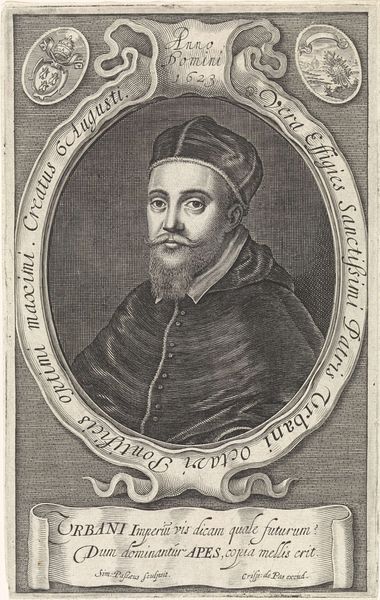
Portret van de karninaal Luis Manuel Fernández de Portocarrero 1670 - 1713
0:00
0:00
pieterschenk
Rijksmuseum
print, metal, paper, engraving
#
portrait
#
baroque
# print
#
metal
#
charcoal drawing
#
paper
#
history-painting
#
engraving
Dimensions: height 247 mm, width 179 mm
Copyright: Rijks Museum: Open Domain
Editor: So, this is "Portrait of Cardinal Luis Manuel Fernández de Portocarrero," made sometime between 1670 and 1713 by Pieter Schenk. It's an engraving, a print on paper from a metal plate. It feels…stately, I guess. How do you interpret this work? Curator: It's interesting to consider this print as more than just a portrait. Think about the role of printed images in the 17th and 18th centuries. This image wasn't just about accurately representing Portocarrero. It’s a political statement, carefully crafted and disseminated to project power. Editor: A political statement? In what way? Curator: Consider his position. Portocarrero was a key figure in the Spanish court, even serving as regent for Charles II. This print would have been a tool to solidify his image and influence, circulating among elites and reinforcing his authority. Note the Latin inscription. Does it evoke to you certain powerful men who came before him? Editor: Now that you mention it, yes. The inscription alludes to Richelieu and Mazarin, both very powerful Cardinals who influenced political policy in France during that time period. Curator: Precisely! By linking Portocarrero to those figures, the image reinforces the cardinal’s significance in the Spanish political sphere. This image functions as carefully constructed propaganda, making visible claims to power. It's important to think about who commissioned it, where it circulated, and what effect it was designed to have. Editor: Wow, I was just looking at a picture of a guy, and you're showing me how it reflects an entire power structure. It gives a new meaning to consider how art served a specific role within its contemporary society. Curator: Exactly. It reveals how art acts as a player within politics and history, beyond mere aesthetics.
Comments
No comments
Be the first to comment and join the conversation on the ultimate creative platform.
